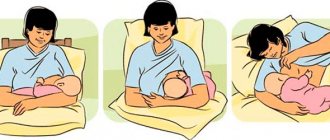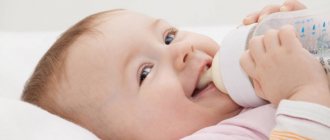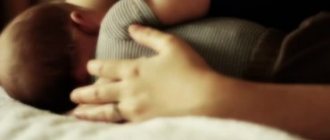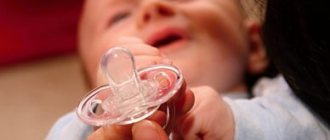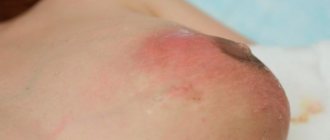Breast milk is the most balanced, healthy and adapted nutrition for a child in the first year of life. With mother's milk, the baby receives not only vitamins and minerals, but also antibodies that protect him from diseases and contribute to the formation of strong immunity. Mother's milk also contains all the necessary amino acids involved in the functioning of the brain and are responsible for the intellectual development of the child.
Pediatricians and breastfeeding specialists advise feeding infants “on demand” and maintaining lactation for as long as possible (ideally up to 1.5-2 years), but there are situations when the question arises about the possibility of continuing breastfeeding and its safety during a certain period. Such situations include poisoning of a nursing mother, which can occur at any stage of lactation.
Breastfeeding during poisoning
First of all, you need to understand what kind of poisoning we are talking about. If a nursing mother has been poisoned by chemicals or a large dose of any medication, then in this case it is impossible to give the baby breast milk. After all, most medications and toxic chemical compounds are absorbed into the blood and easily enter the mammary glands.
In case of food poisoning (or toxic infection), you can breastfeed your baby without fear. This disease is caused by bacteria and their waste products that enter the gastrointestinal tract (GIT) from poor-quality, expired or poorly washed food. The microorganisms themselves do not enter the bloodstream, and their toxins are only partially absorbed and practically do not penetrate the mammary glands. In addition, from the first day of illness against pathogenic microbes, the mother’s body begins to produce antibodies, which are passed on to the baby through milk. This process contributes to the proper development of the infant's immunity.
If a woman has to take serious antimicrobial medications to fight an infection, breastfeeding should be suspended during treatment.
Food poisoning
Food poisoning is not uncommon. The reasons for this problem can be very different. These include the following:
- Eating spoiled or stale food.
- Poisoning can be caused by unripe or rotten vegetables and fruits.
- Mushrooms, fish, and meat products often cause problems in the gastrointestinal tract. Such food should be prepared following certain rules.
- Canned food can often become a source of poisoning.
- Failure to comply with hygiene standards also leads to severe disruption of the digestive system.
Symptoms
Symptoms of food poisoning appear within 2 days after eating low-quality food. A woman appears:
- Diffuse abdominal pain;
- Severe nausea and repeated vomiting;
- Repeated loose stools;
- High fever;
- General malaise, weakness;
- Pain in the temples, joints, muscles as a manifestation of intoxication syndrome.
Signs of poisoning
A few hours after the infectious agents enter the body, symptoms of poisoning occur, which include:
- upset stomach (loose stools, increased gas formation, abdominal pain, etc.);
- nausea;
- vomit;
- increased body temperature;
- tachycardia;
- weakness;
- dizziness.
You can fight mild intoxication on your own; after cleansing the body, the symptoms of poisoning disappear within 24 hours. If emergency measures do not help alleviate the condition, or the poisoning is accompanied by high fever, chills, uncontrollable vomiting, or increased heart rate, you must call a doctor at home.
Treatment rules for breastfeeding
Mild poisoning can usually be managed without taking antibiotics. The sooner you start treatment, the higher the chance of defeating the disease on your own.
Drinking regime
To relieve intoxication, drink at least 2 liters of fluid per day. Non-carbonated mineral water or weak herbal tea will do. You will have to temporarily give up soda, coffee, and fruit juices.
If repeated diarrhea and vomiting are observed, then to replenish the volume of electrolytes and carbohydrates, you need to use oral rehydration products - Orosan, Gastrolit, Rehydron.
In case of constant vomiting, you need to drink in small portions, but more often, in order to get the required volume of liquid without provoking vomiting. Water that is preheated to body temperature (about 37 °C) is absorbed most quickly.
Diet for poisoning
On the first day of food poisoning, it is recommended to observe complete fasting. If the disease is mild, then it is permissible to have a small snack with soaked crackers, oatmeal or rice porridge cooked in water.
In the future, a strict gentle diet is indicated, which involves avoiding heavy and irritating foods to the gastrointestinal tract. These include:
- Fatty meats and fish;
- Pickles and marinades;
- Smoked meats;
- Fried foods;
- Spicy seasonings;
- Raw fruits and vegetables;
- Alcoholic drinks.
It is best to eat steamed lean dishes, oatmeal, buckwheat, rice porridge, and jelly.
The doctor's consultation
A doctor's examination is needed in the following cases:
- Diarrhea and diarrhea do not stop, and there is a risk of dehydration;
- Lethargy and depression of consciousness are observed;
- Vision is impaired;
- The high temperature persists, which cannot be brought down with standard antipyretics;
- An admixture of blood appears in the vomit or feces.
Before starting treatment, be sure to notify your doctor that you are breastfeeding.
Rest
In case of food poisoning, a woman is advised to go to bed. If there is an assistant in the house (husband, grandmother, grandfather, nanny), then it is better to limit the mother’s contact with the child only during feeding periods.
If the mother has to cope alone, then most of the time she should be in bed, if possible, with the baby next to her. Keep his attention busy with an interesting toy or picture book. When the baby sleeps, it is advisable to fall asleep with him.
Treatment for poisoning of a nursing mother
When treating women during lactation, some restrictions arise, since many chemicals are excreted in breast milk. This can have a negative impact on a defenseless child's body. Therefore, any prescription of drugs must be deliberate.
In case of toxic infection, antibiotics are not indicated at all, since the pathogen is absent in the body.
Intestinal infections often require the prescription of antimicrobial or antibacterial drugs to eliminate the cause of poisoning—bacteria. Most of these medications are contraindicated during lactation. But some infections require the use of these medications. Then there is a danger for the child, and feeding should be stopped. In any case, consultation with a doctor is necessary.
It is necessary to take into account the clinical manifestations of the disease and their severity. Treatment in this situation is exclusively symptomatic.
Main manifestations of poisoning:
- vomit,
- diarrhea,
- nausea,
- stomach ache,
- general symptoms: weakness, fever, muscle pain, headache.
If symptoms of intoxication appear and you think that the cause is spoiled food, it is necessary to carry out a series of detoxification measures.
- Get rid of the cause that caused these troubles: gastric lavage and a regular enema (if there is no natural cleansing of the intestines in the form of loose stools).
- Reduce the absorption of toxins in the intestines using adsorbents. Smecta should be taken one sachet three times a day, diluted in a quarter glass of water. When calculating the dose of activated carbon, it is necessary to take into account body weight. You can use Polysorb - a heaping tablespoon four times a day. Enterosgel is recommended as a sachet or a heaping tablespoon three times a day. It must be remembered that drugs in this group are taken 1–1.5 hours before meals. You need to wait the same amount of time if you take the adsorbent after a meal. This rule also applies to taking medications.
- Since the body loses fluid and microelements with vomit, as well as frequent and abundant stools, it is necessary to drink a lot. Saline solutions (Regidron), alkaline (mineral) still water, sweet tea, and glucose solution (5%) are suitable for this. It is advisable to alternate them. The basic rule: drink often, but little by little. Otherwise, you can provoke vomiting and even greater dehydration of the body.
- Nutrition should be gentle. Avoid products containing fiber and organic acids, which irritate the mucous membrane of the digestive tract and contribute to increased intestinal peristalsis.
- If you are worried about nausea and vomiting, it is better to use traditional methods. It could be green tea. A decoction of dill seeds (a small spoon per 200 ml of boiling water) will not harm, which further enhances lactation. Antiemetic drugs can be used, but in extreme cases.
- The medicine for diarrhea, Loperamide, is strictly contraindicated for nursing women. Therefore, we save ourselves with what is at hand. Using rice water or eating porridge from the same grain, prepared without milk, is effective. A well-known folk remedy is a decoction or infusion of bird cherry (a tablespoon of fruit per glass of boiling water). Potato starch is also suitable: pour a teaspoon of starch into half a glass of cold water, mix and use everything at once. Auxiliary products: enzymes (Pancreatin, Festal) and probiotics (Linex, Bifiform, Acipol).
- For abdominal pain, it is better to use medicinal herbs that have an antispasmodic effect. This could be chamomile tea, which additionally has anti-inflammatory properties. The intake of antispasmodics and other painkillers is limited.
Antimicrobial and antibacterial drugs are not used in the treatment of mild poisoning. Used according to strict indications and as prescribed by a specialist. But even if such drugs are prescribed, breastfeeding during poisoning is possible. In this case, the doctor will take your situation into account and prescribe the safest remedy, if possible.
Feeding precautions
To prevent the infection from being transmitted from mother to baby, during illness special attention should be paid to the rules of personal hygiene:
- Wash your hands every time before picking up your baby, expressing milk, or preparing complementary foods.
- Do not dry your baby with your towel.
- Do not let your baby drink or eat from your dishes, and do not try feeding him with a spoon.
- Rinse your mammary glands before feeding.
- If you place your baby on your bed, place a diaper on top of the bedding.
Methods of treating intoxication in nursing mothers
A mother will be able to calmly feed her baby breast milk only if she feels normal. And for this, first of all, you need to relieve intoxication syndrome.
Method of gastrointestinal lavage
You can rinse your stomach at home by artificially inducing vomiting. To do this, first drink at least a liter of still water. Then you need to bend over the toilet and press the pads of the 2nd and 3rd fingers on the base of the tongue or on the back wall of the throat. This will provoke a gag reflex and the removal of food contaminated with bacteria and their toxins from the stomach.
It is advisable to artificially induce vomiting only within 2 hours after eating. If more time has passed, then toxins have time to be absorbed into the bloodstream, and most of the food is evacuated from the stomach.
After vomiting, you should rinse your mouth with water to wash away the hydrochloric acid that has entered the stomach cavity.
Detoxification methods using sorbents
Enterosorbents are drugs that bind bacteria and the toxins they secrete, and then quickly remove them from the body, preventing damage to the gastrointestinal tract. Another useful property of sorbents is the antidiarrheal effect. These are the safest medications to combat poisoning that you can safely drink during lactation.
The most effective and easy-to-use sorbing agents are smecta, polysorb, enterosgel. You should drink them until all symptoms of the disease subside.
Symptomatic treatment
To normalize body temperature during lactation, ibuprofen and paracetamol are allowed. It is advisable to reduce the temperature if it exceeds the threshold of 38.5 °C. In other cases, it performs a protective function.
To combat diarrhea, it is possible to prescribe enterol containing Saccharomycetes. The average duration of treatment with this drug is 7 days.
The most popular anti-diarrhea drug, Imodium, is not advisable to drink while breastfeeding. We can only take it once.
Antispasmodics (no-spa, drotaverine) and antiemetics (cerucal, motilium) are also allowed to be taken 1-2 times. At this dose, they will not be able to harm the baby, even if they get into the milk.
There are some antibacterial agents that are allowed during breastfeeding. These include, for example, the intestinal antibiotic alpha normix. However, such treatment must be agreed upon with a doctor.
Preventive measures for breastfeeding women
To avoid having to treat poisoning during breastfeeding, the easiest way is to pay attention to preventive measures:
- Wash vegetables, fruits, eggs thoroughly before eating;
- Throw away products that have passed their expiration date;
- Wash your hands before every meal;
- Rinse dirty dishes well;
- Do not buy shelf-stable products whose packaging has been damaged;
- Do not drink unboiled water from questionable sources;
- Thoroughly boil and fry meat and fish dishes;
- If food has an unpleasant odor or tastes unusual, it is better to avoid it.
Emergency measures
Emergency care for food poisoning in a nursing mother involves gastric lavage and taking enterosorbent. If a woman is poisoned by medications or toxic chemicals, you should immediately call an ambulance, and while waiting, also induce vomiting.
Do not try to rinse your stomach yourself if you are poisoned with aggressive solutions of acids and alkalis. Their repeated passage through the esophagus will intensify its chemical burn.
Can a mother breastfeed her child if she is poisoned?
Some women, having felt poisoning, which is expressed in nausea, vomiting and diarrhea of varying severity, headache and a slight increase in temperature, immediately stop breastfeeding, believing that they will thereby be able to protect their child from such symptoms. Due to their ignorance, mothers only cause harm to the child. After all, breast milk is the main factor contributing to the full development of the child. It also serves as a powerful foundation for the baby’s strong immunity in later life. And as you know, having good immunity, he will get sick less often. By depriving him of such a valuable product as milk, a woman, accordingly, deprives him of such an opportunity.
It is necessary to consider the nuances in detail in order to give an accurate answer to the question - is it possible to breastfeed if poisoned. In case of poisoning, only the gastrointestinal tract is affected. Harmful and toxic organisms do not have the opportunity to enter breast milk during breastfeeding. In case of illness, the mother’s body will produce a large number of antibodies, which will be passed on to the child. This phenomenon will have a similar effect as vaccination. That is, it will develop immunity to one or another pathogen.
Possible causes of poisoning in a nursing mother
The most common cause of foodborne illness (food poisoning) is the consumption of low-quality food, expired or insufficiently heat-treated. The greatest danger is posed by eggs, meat and dairy products, in which pathogenic bacteria spread the fastest. Cow's milk, as well as the eggs of domestic chickens, can contain large quantities of salmonella and E. coli, which are completely destroyed only with prolonged heat treatment, so a mother who is breastfeeding a child needs to take a responsible approach to the choice of products and their preparation.
More severe cases, which may require hospitalization in an infectious diseases hospital, are considered:
- infection of the gastrointestinal tract (gastrointestinal infections);
- poisoning with expired medications;
- damage to the respiratory system by harmful vapors and toxic substances;
- poisoning with acids and alkaline solutions.
When asked whether it is possible to feed a child with breast milk if a woman exhibits symptoms of poisoning, doctors give a positive answer , but with two caveats:
- The feeding process should not negatively affect the woman’s condition.
- The cause of the pathology must be foodborne toxic infection.
In all other cases, feeding should be stopped due to the high likelihood of toxic substances getting into breast milk.
Can a baby be poisoned by mother's milk?
For a child who has just been born, there is nothing healthier than mother's milk. After all, for proper development, the formation of immunity and all vital systems of the body, breast milk. It is a great source of hormones, antibodies, beneficial bacteria, immunoglobulins, minerals and enzymes. No formula compares to mother's milk.
But a nursing mother is not immune from poisoning, even if she believes that she takes good care of her diet. Sometimes, the source of infection is not at her home, but in the store. You should carefully study the composition and look at the expiration date of the purchased products.
If, after all, the mother experiences poisoning while breastfeeding, then there is no need to think about stopping it. Doctors say that mother's milk contains living organisms that can have a beneficial effect if bacteria enter the child's body during breastfeeding. Some of these substances will bind and remove pathogenic bacteria from the body, while others will strengthen its immunity. The harm to the baby is insignificant when compared with the benefits received.
If you doubt whether it is possible to feed a child with breast milk in case of poisoning, then the answer is definitely positive. Due to the huge amount of carbohydrates and lactose in milk, bifidobacteria develop in the baby’s gastrointestinal tract. This scheme serves as a barrier to the penetration of dangerous microbes and bacteria into the hematopoietic system and mucous membrane of the children's intestines. It follows from this that the baby cannot be poisoned by his mother’s milk if she is poisoned.
What can cause poisoning
Poisoning is the effect of toxic substances on the body. Everyone has encountered this phenomenon. Intoxication causes a disruption in the normal functioning of human organs and systems. There are several causes of poisoning:
- products of dubious quality;
- toxic substances;
- chemicals;
- drug poisoning.
A nursing mother usually experiences eating disorders due to the penetration of bacteria and microorganisms into her body. This happens if the mother ate something of poor quality or something that was incorrectly prepared and stored in inappropriate conditions, or its expiration date has simply expired. The main causes of poisoning include:
- poorly washed vegetables and fruits. Either picked from your garden or bought in a store;
- preserved food, during the preparation of which the established standards of preparation were violated;
- hands that were poorly washed;
- poisonous mushrooms;
- dairy products such as kefir, sour cream, milk, which have expired or were stored in unsuitable conditions;
- water of questionable quality, which was used for cooking or just for drinking.
It does not matter which of the reasons caused the intoxication. Toxins will still penetrate into the body of a nursing mother. They will cause irritation of the mucous membrane and further symptoms of the disease.
Treatment for poisoning of a nursing mother
Poisoning associated with digestion can be mild or severe. For a mild form of food poisoning, a nursing mother can be treated at home. Every mother will first of all remember that most medications are prohibited while breastfeeding. But there are drugs that are not contraindicated in treatment.
It is necessary to cleanse the intestines of toxins present in it. An effective medicine would be activated carbon, Smecta, Polysorb or Enterosgel. It should be taken strictly according to the instructions, without exceeding the dosage. At elevated temperatures, take paracetamol, 2-3 tablets per day, or Nurofen, in the form of baby syrup.
If a mother is suspected of being poisoned due to poor-quality food, the mother should cleanse her stomach. To do this, make a weak solution of potassium permanganate. Take half a liter of this drink in small portions every 10–15 minutes. Then induce vomiting. This will help the leftover food leave the body. To avoid dehydration, mom needs to drink a lot of liquid: water (boiled), chamomile tea, compote, strong black tea.
If loose stools occur, be sure to remember that all medications for diarrhea during feeding are prohibited. Traditional medicine methods will come to the rescue here:
- 10–15 black peppercorns;
- rice broth;
- decoction of potato starch;
- rice porridge cooked in water.
For abdominal pain, taking painkillers during lactation is prohibited. Tea made from chamomile flowers (not saturated) can help. A prerequisite for poisoning is to follow a diet. In addition to the fact that a nursing mother already monitors her diet during this period, during illness she should eat food that will not irritate the intestines. Food needs to be boiled or baked in the oven. Eliminate hot, spicy and fatty foods from your diet.
If all independent therapeutic measures do not improve the mother’s condition, you should consult a doctor. The doctor will analyze the symptoms and prescribe, if necessary, effective treatment.
Preventive measures for nursing mothers
In order to avoid poisoning in the future, you should follow simple rules:
- Wash fruits and vegetables well before eating;
- Do not buy products if the packaging is torn or damaged;
- Food should be well boiled or stewed;
- Carefully monitor the date of manufacture and how long the product is good for;
- Strictly adhere to the rules of personal hygiene;
- Wash your hands before each breastfeeding;
- Keep your chest clean.
From all that has been said, it follows that poisoning is not a reason to stop feeding. The future health of her baby depends on the mother, which he will strengthen with the help of her milk. By taking all precautions, a woman will be able to feed her baby for a long time without any problems. After all, this is the best food for him. And also learn that if you have food poisoning, you can breastfeed.
source

